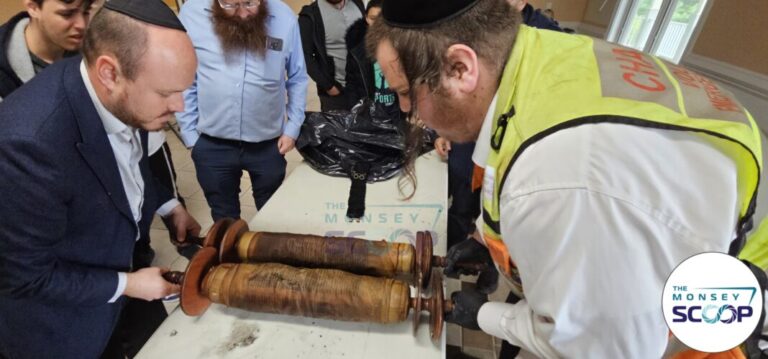 When Congress denied Andrew Jackson the White House even though he’d won more votes than any other candidate, he blamed it on “bare faced corruption.”
When Congress denied Andrew Jackson the White House even though he’d won more votes than any other candidate, he blamed it on “bare faced corruption.”
When Rutherford B. Hayes won the presidency five decades later, supporters of his opponent, Samuel Tilden, offered to march on Washington and install him by force.
For nearly as long as there has been a United States, presidential campaigns have periodically ended with bitter divisions over accusations of political trickery and reluctance by the losing side to accept the outcome.
And yet, for all that fiery history, there has never been a candidate quite like Donald Trump, whose assertions that the election is rigged and that he might not accept the result come well before most votes have even been cast.
Presidential elections have largely followed a tradition of respectful, although sometimes pained, acceptance once results are finalized, with the loser making a point to cede the stage to the winner. Such peaceful transitions have become a constant in recent decades even as partisanship has turned increasingly rancorous and despite questionable outcomes.
“I’m not aware of any episode where the strong presumption hasn’t been that you accept the result, and I think that’s been the practice really throughout our history,” said Joel Goldstein, a professor of law at Saint Louis University who is an expert on the history of the vice presidency.
That was evident in 1960 when Richard Nixon conceded to John F. Kennedy despite allegations of vote fraud in Illinois and Texas.
“He accepted the result and wanted the country to move forward,” said John D. Feerick, a professor of law at Fordham University who has studied presidential successions.
In 2000, despite having won the national popular vote, Democrat Al Gore conceded the presidency to George W. Bush after the Supreme Court ruled 5-4 to end recounts in Florida with Bush clinging to a lead there of just 537 votes.
“While I strongly disagree with the court’s position, I accept it,” Gore said.
Gore’s acceptance came after legal battles that lasted more than a month, focusing on actual ballots cast. But Trump’s refusal to say if he will accept the results of voting has stunned observers because it comes weeks before Election Day.
“I will tell you at the time. I’ll keep you in suspense,” Trump said Wednesday during his final debate with rival Hillary Clinton. In a speech Thursday, he said that he would accept the result of vote counting, “if I win.”
Presidential candidates have certainly disputed past elections — but after the fact, when questions arose over actual votes and the circumstances under which they’d been cast.
The 1800 election saw Thomas Jefferson finish with the most popular votes but tied with Aaron Burr in electoral votes, causing deadlock in the House of Representatives. When the party of the defeated John Adams backed Burr, Jefferson warned that his followers might use force, before the deadlock was broken.
When Jackson lost the White House in 1824, his supporters accused House Speaker Henry Clay of making a “corrupt bargain” to back John Quincy Adams. But Jackson soon shook Adams’ hand and wished him well, said Donald Ratcliffe, author of “The One-Party Presidential Contest: Adams, Jackson, and 1824’s Five-Horse Race.”
Jackson and his followers did not oppose Adams’ inauguration or stand in the way of his appointments.
“The basis of a stable democracy is that people who lose elections are willing to accept their own defeat,” Ratcliffe said.
Concession was again the order in 1876 when Hayes was awarded the White House by a partisan commission set up to allot disputed electoral votes. Hayes had lost the popular vote amid widespread violence against black voters in Southern states, where white voters overwhelmingly backed his rival, Tilden.
But Tilden worked to tamp down calls by his supporters to take the presidency by force, said Michael F. Holt, author of “By One Vote: The Disputed Presidential Election of 1876.”
The most glaring example of politicians’ refusal to accept the outcome of an election came in 1860 when a number of Southern politicians rejected Abraham Lincoln’s election in advance, setting the nation on course toward the Civil War.
But for most of American history, rivals for the White House have been notable for their acceptance of defeat. For proof look no further than a note from 1993, on White House stationery, that circulated widely online in the hours after this week’s debate.
“Dear Bill,” the defeated George H.W. Bush wrote to his successor, Bill Clinton. “I wish you well. I wish your family well. Your success now is our country’s success. I am rooting hard for you. Good luck – George.”
(AP)






6 Responses
The corruption that denied Jackson was in the open, and four years later he was elected by a landslide.
The corruption in Hayes win was also in the open, and he paid a tremendous price (up to that point the newly freed slaves had civil rights under army protection, and to win he agreed to “Jim Crow” and all that entailed such as lynchings, denial of voting rights, denial of protection of the courts, etc.).
A better example would be Richard Nixon who probably lost because of the Chicago Democrats stealing votes, but chose to accept it. He went on to win two terms in the White House.
It is interesting that the winners of the corrupt elections were never reelected.
And BTW, it is fairly clear not only that Bush did carry Texas, but the votes Gore lost were not due to opponents’ corruption but due to incompetent allies.
We get it, the AP writers are voting for Clinton.
we have never before faced a situation where one candidate skirted criminal prosecution of both our records laws and our national security statutes both because of back room shenanigans and collusion between her campaign and the FBI and doj, with a former president (her husband) rearranging an airplane flight in order to improperly talk with the sitting attorney general.
there is voter fraud rampant across the country with one major party doing everything within its power to allow illegal aliens to vote (California), continue the practice of dead people voting straight-ticket democrat, electronic voting machine irregularities, and suppression of honest voting by fighting lawful and sensible photo ID rules.
Hillary herself accused Obama of stealing the 2008 election. she likely knows of what she speaks.
with wikileaks shoeing us corruption and collusion, with a candidate and a party mired in lies, fraud, corruption, deceit b’shitta, only a fool would trust the election results sight unseen.
let’s quote Barack: if you like your election, you can keep your election (while he knows its all a boldfaced lie).
Has hem yirachem.
with all due respect to professor Joel Goldstein, we LSO should not forget that loathsome quote by a politician after the 2000 election had been **decided**:
“George Bush was selected not elected. ”
and who said it? The ‘honorable’ Hillary Clinton.
You mean Florida, not Texas.
Apukerma, very well said. Here, the corruption is already evident when a clear criminal whose acquittal by the FBI shocked everyone is running against him, with the media on her side.
The scandalous term of her husband underscores what we are in for if she wins. Her primary win was already corrupted, as proven by the Wasserman-Shultz emails.